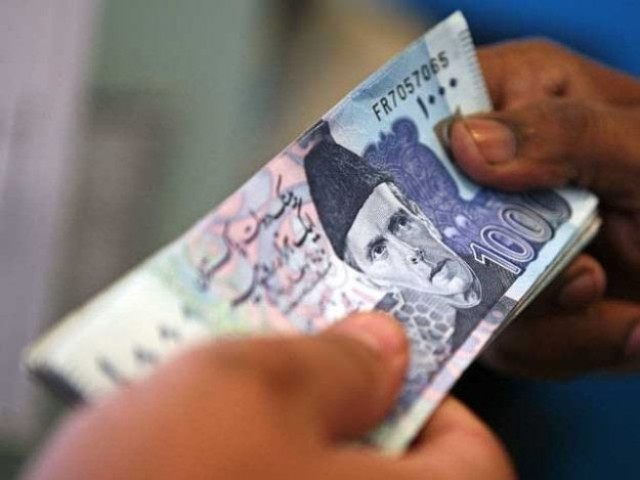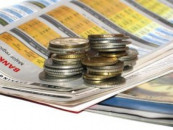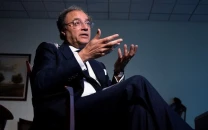Spending goes unchecked as country becomes addicted to debt
Loans must only be spent on development to defeat corruption culture

Share of short-term loans increases to half of total borrowing. PHOTO: FILE
A closer-to-reality picture emerges when attention is paid to state spending and the sources required to sustain such fabulous spending. Whether Ishaq Dar or any other guy sits in the finance ministry, such mindless state spending cannot count on domestic resources.
The present politico-economic turmoil is rooted in a drastic increase in federal and provincial spending since the 1980s when General Ziaul Haq charted out a policy to make external sources of financing as the main source of budget. He relied primarily on this money source.
Nawaz added whopping $35b to Pakistan’s debt
Later, the civilian era of 1988-99 was troubled by the twin issues of terrorism. The US-led coalition got active in the region and policies for economic reforms were put on the back burner. The drift from domestic funding sources to external assistance was faster in that era. And then, there was no going back.
Addiction to the International Monetary Fund (IMF) got deeper in the national politico-economic circles and bowing to its stronger conditions for reforms was no longer a political snag.
General Musharraf championed the cause of “Pakistan First” while seeking more money under the US Coalition Support Fund and spent amounts to shape up his political strength. He insisted that he was different from General Ayub Khan and General Zia, but continued the same policy of banking on external resources. Thereafter, the advancing wheel could not be turned back, though the slogan of “Breaking the Begging Bowl” got even louder. The addiction to external debt became stronger with the claim that Pakistan was meeting IMF conditions successfully.
This was a symptom of political and economic collapse whereas Dar was hoping against hope. He gave several arguments to emphasise that the national economy was being managed well and was on its way to touch higher growth rates.
He dismissed the idea that the economy was reeling from the impact of misspending and over-spending as well as meeting additional budgetary requirements through expensive loans.
He always spoke about growing foreign currency reserves of the central bank and the shrinking current account deficit. However, the gap between domestic cash resources and federal-provincial spending was widening and the only source to bridge that deficit was costly debt that mounted and forced Pakistan to keep paying the mark-up, leave alone the debt.
A latest IMF report puts Pakistan in the category of states that have “outstanding” balance of payments. Its website says “when a member has overdue financial obligations outstanding for more than three months, the amount of such arrears will be shown in this section.”
The World Bank has this to say: “Growing fiscal and external imbalances have eroded the hard-earned gains in restoring macroeconomic stability in the last three years and they could affect the country’s growth prospects if not addressed.
Moody's says Pakistan's external debt will increase to $79 billion
“The fiscal deficit expanded to its highest level during the last three years as revenue mobilisation weakened and expenditures rose at both provincial and federal levels. Simultaneously, the external account deteriorated sharply due to a widening trade deficit and a fall in international remittances.”
These remarks may not move public finance managers in Islamabad as the addiction to debt has gone deeper.
Corruption has pervaded the tax structure, development projects, public procurement and even the social service structure because of the overspending culture.
Revolutionists call for stopping the extravaganza, not a change in the political class. Those who demand a change in the political class may be supporters of overspending and corruption. They better raise the slogan against expensive debt seeking and for revising the policy of debt-driven budget.
I must say that debt is not forbidden in the state mechanism if used for development. Addiction to budgeting based on debt is forbidden, especially for the state that prefers external resources to domestic ones. Domestic resource development is never the priority of policymakers that bank on external resources. Spending within limits is the panacea for states that are in preliminary stages of politico-economic evolution.
Do Pakistan’s public finance managers realise that? They cannot. They are born in a culture of debt and corruption. Once the policy of restricting spending is adopted, loans will only be spent on development, pulling Pakistan out of the corrupt procurement and contract culture.
The writer has worked with major newspapers and specialises in the analysis of public finance and geo-economics of terrorism
Published in The Express Tribune, November 20th, 2017.
Like Business on Facebook, follow @TribuneBiz on Twitter to stay informed and join in the conversation.



















COMMENTS
Comments are moderated and generally will be posted if they are on-topic and not abusive.
For more information, please see our Comments FAQ